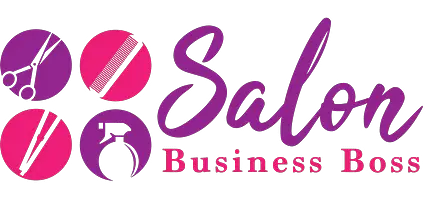Styling hair is something that people who do it often really enjoy. And what’s not to like? You get to help people feel better about themselves. They sit down in your chair feeling all sorts of different ways and leave feeling fresh and made over. Hair salons are looked on favorably by the community most of the time. So, opening your hair salon is a good idea. However, taking a good idea and making it a thriving business can be overwhelming when you don’t know all that you should.
You need to know what you’re getting into before you can choose how you want to set up your business.
A hair salon is a business entity dependent upon how you structure it. These are the most common options you have:
-
-
- Sole Proprietorship
- Partnership (LP)
- Limited Liability Corporation (LLC)
- Limited Liability Partnership (LLP)
- Corporation (C Corp)
-
Let’s start by talking about what you should be considering when you’re trying to decide on a legal structure for your hair salon business. First off, are you going into business alone or with another person? If you’re going into business with someone else, you will have a partnership.
Beyond who is going to own the business, you need to consider how intermingled you want the business assets to be with your assets. The business entity you select will determine how liable you are personally for the debts of the salon. If you don’t have any separation between your finances and other assets and those of the business, then if things go south, you’ll be held personally liable for the salon’s financial failures.
Finally, you’ll want to consider how you want to be taxed. A corporation gets taxed much differently than a sole proprietorship. You need to look into what the best option will be based on the tax laws for each business entity, as well.
This is going to be the easiest of all to set your salon up as. The reason for this is because you aren’t forming anything. When your business is structured as a sole proprietorship it’s just you. There is no separation between what is owned by you and what is owned by the business.
The upside to doing business this way is that you have total control over the salon and how you want to run it. There’s no registering with a governing agency or anything like that. All of the finances are co-mingled together. And taxes are all filed through your returns. You can still get a trading name for your hair salon, but it just won’t be a separate entity.
The downside is that you will be held personally responsible for all the debts of the business. You also may find it hard to secure financing from a bank or any other type of financial institution.
There’s nothing wrong with owning a hair salon that is structured as a sole proprietorship. You just need to choose your setup wisely. If you’re unsure about how your salon is going to do, maybe start with a sole proprietorship for the sake of trying things out. You can change the structure later on, once you feel more comfortable with the future outlook for the salon.

Much like a sole proprietorship, a partnership does not separate the business from the owners, either. All the partnership does is make more than one owner personally liable for the obligations of the business.
One of the biggest issues, when you’re dealing with a partnership, is how things are split up. If you’re going to go with a partnership, you and your partner or partners need to sit down and put on paper how much each of you will be responsible for should the business fall on hard times. Layout in writing how the salon is divided up in terms of ownership.
In many cases, the partnership will be set up as a Limited Partnership, or LP. What this means is there is a named partner who is considered to be liable without limits for all of the business’s debts and obligations, while the other partners are only liable in a limited capacity.
This type of business structure allows you to separate the business as an actual entity in and of itself. Your assets and finances will be completely separated from those of the salon. This setup provides you with protection in your personal life in the event there is legal action taken against the business or when the salon experiences profit losses.
With regards to taxes, the business will enjoy some of the tax benefits that corporations get to but without paying the higher levels of tax that a C Corp does. The salon will be taxed more like a corporation, however, as the owner, you’ll still be considered self-employed. That means you’ll be making the required contributions to Social Security and Medicare that all self-employed individuals have to make.

Again, this type of structure affords the owners of the business protection for their assets. The difference between an LLP and an LP is this gives all of the partners the same amount of limited liability. With the LP, there is one general partner who will have unlimited liability in the event the business tanks or suffers a lawsuit. The LLP makes all partners equal in their limited liability status.
This business legal structure protects the partners from each other, as well. No one partner will be held liable for the actions of another partner. In an LP structure, that’s not the case.
A corporation will give you the most separation between your salon business and you personally. This is the structure that will give you the most protection for your assets. It’s the entity that will cost you the most to establish, as well. It also is governed more strictly and is very highly regulated. There is more paperwork involved, more reporting expected, and much more of the functionality of your salon will be determined outside of your business.
The tax structure for this type of entity is much different, as well. There will be income tax paid on all of your profits. If you have shareholders to who you pay dividends, you’ll sometimes pay taxes on that, also. That means you would be taxed twice on your profits.
The good thing about being able to sell a stock is that you have a means for raising funds. It’s also much easier for a corporation to obtain bank loans for their business needs. Corporations can then hire more employees, which leads to more clients, and ultimately to more growth as a business.
This is a much tougher kind of entity to establish, but it can be well worth it if you have the capability of getting it started. If you’re wanting to grow your salon into a larger scale company, the corporation might be the way to go.
Learn more about the essentials needed to start your business HERE!
Choosing the right business entity for your hair salon is entirely up to you. What kind of separation do you want between yourself and the company? Do you want to be a public company with shareholders who help you raise money? Are you going into business by yourself or with someone else? How do you want to be taxed? Once you answer these questions, you’ll be able to hone in on the right business legal structure for your salon. Then, you can develop your business plan more and work toward getting your salon open and operating as the entity of your choice.
Related Questions

What is considered a business entity?
The words “business entity” simply refer to an establishment that’s been started to operate as a conductor of business. It’s how the business or company will be recognized from a legal standpoint. The type of business entity chosen for each business will dictate regulations and laws the company will adhere to, how it will be taxed, and the liability of its owners.
Some common business entities include:
-
-
-
- Sole proprietorships
- Partnerships (LP or LLP)
- Limited Liability Corporations (LLC)
- Corporations (C Corp; S Corp; B Corp; etc.)
- What business category is a hair salon?
-
-
A business category indicates what type of business a company is considered to be. In the U.S., business categories are determined by the North American Industry Classification System. The NAICS categorizes hair salons as Personal Care Services, or 8121.
The business category will allow salon owners to easily understand what laws and regulations they have to abide by. Different business categories fall under different governing agencies, and thus different laws. There will be some regulations set at the federal level, but most of the governance for salons will be established at the state and local levels.
Looking to start your own Salon? Get the documents you need to get organized and funded here.
Please note: This blog post is for educational purposes only and does not constitute legal advice. Please consult a legal expert to address your specific needs.

About the author. Entrepreneur and Salon Business Fan.
Hi! I am Shawn and I am a happy individual who happens to be an entrepreneur. I have owned several types of businesses in my life from a coffee shop to an import and export business to an online review business plus a few more and now I create online salon business resources for those interested in starting new ventures. It’s demanding work but I love it. I do it for those passionate about their business and their goals. That’s why when I meet a salon business owner, I see myself. I know how hard the struggle is to retain clients, find good employees and keep the business growing all while trying to stay competitive.
That’s why I created Salon Business Boss: I want to help salon business owners like you build a thriving business that brings you endless joy and supports your ideal lifestyle.







